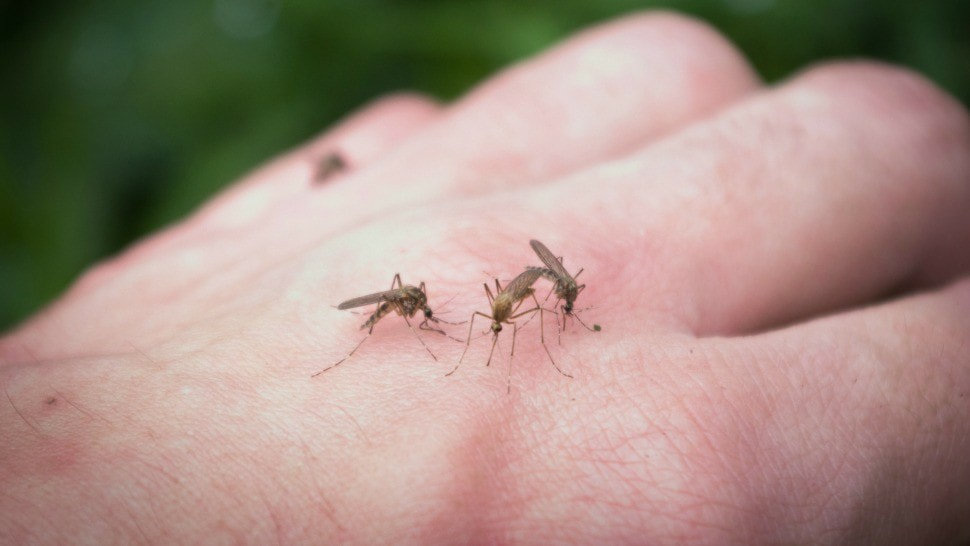World Malaria Day (April 25th)Size doesn’t matter and this is very much true in the case of mosquitoes which disrupt our lives quite often. While there have been steps taken worldwide to eliminate malaria, a disease caused by mosquitoes, the last couple of years have seen a downside in their efforts and this is very much true in the case of the year 2017 which witnessed 219 million cases of malaria worldwide compared to only 217 million in 2016. Shockingly, 70% of the world’s malaria cases are completely concentrated in 11 different countries that includes India and ten others in the African continent.
Malaria Malaria is a preventable disease caused by one of the four Plasmodium parasites that’s transmitted to humans after being bitten by the female mosquito from a specific genus that spreads the Plasmodium parasite. It takes around 7-18 days for the symptoms to appear after being infected with the parasite. Rarely, it could even take as long as a year to appear. Scientists have been working on this-trying to stop the parasite from pursuing its action from an earlier stage. Malarial drugs today work by reducing symptoms once the individual is affected by the disease and try to abort replication of the parasite in blood. These drugs neither prevent infection nor transmission via mosquitoes. A team of scientists tried to take control of the parasite as soon as it hits the human liver instead of waiting until replication proceeds leading to illness. This group tested thousands of compounds and have succeeded in narrowing down the list to 631 compounds and the names of these compounds have been made public to help anyone putting in their best efforts to succeed in delivering a malaria prevention drug. Mankind would witness a great advancement if this research brings about a positive result in the future. While common symptoms include vomiting, shivering, diarrhoea, headache and muscle pain one specific type of malaria has the potential to lead to severe and deadly consequences such as organ failure too. Get a detailed insight about the disease from the website www.firsteatright.com. Malaria doesn’t spread from person to person but only from an infected mosquito. And, most of the cases are due to night-biting mosquitoes as the individual is infected mostly during the night before the sun rises. World Malaria Day World Malaria Day is celebrated on April 25thevery year to spread awareness among people about this disease. The theme for 2019 is ‘Zero malaria starts with me’ whose main aim is to make you and me take control over the disease by safeguarding ourselves in every way possible. It is not just to eradicate a disease by eliminating the mosquito community and this is not fair too. We would be creating an imbalance in nature’s cycle by doing so too. All we can do is take precautionary steps to stay safe. Some of them include: 1. Use insect repellants directly on the skin and most importantly, reapply them often as their effects don’t stay for a long time. Always use one that has diethyltoluamide (DEET) as its ingredient and these repellents can be in the form of sprays, sticks, creams or even roll-ons. 2. Most air-conditioned rooms are devoid of mosquitoes as the rooms have been kept closed mostly. If you aren’t sleeping in an AC room, it is better to sleep under a mosquito net as repellants are not a great choice compared to repellants and nets. 3. Keep your doors and windows closed during evening hours as they offer a great scope for the parasites to enter the house. If you wish to keep them open, please take effective steps to install mosquito nets. 4. Wear loose-fitting, long-sleeved clothes while avoiding short clothings as this exposes much of the skin surface making it easier for the mosquitoes to take a plunge onto our blood. 5. Avoid water logging in the form of muddles or pools. Ensure that there is no water stagnation as much as possible to avoid attracting mosquitoes. Malaria is avoidable with much care and it is also easily treatable when detected in the initial stages. But, when the diagnosis is missed initially, treatment becomes difficult in the advanced stages as parasite reproduction takes place tremendously meanwhile. Take precautions and safeguard yourself from a preventable disease. Comments are closed.
|
AVOID FRAUD. EAT SMART.+91 7846 800 800
AuthorDietitian & Nutritionist Dr. Nafeesa Imteyaz. Archives
July 2024
Categories
All
Dr. Nafeesa's Blog @blogspot |
- Home
- Written Testimonials
- Consult
- Clinics
- Blogs
-
Diet & Nutrition
- Diabetes Reversal
- IVF IUI not needed for PCOS PCOD Infertility
-
Medical Nutrition
>
-
Disease & Conditions
>
- Infertility | PCOS
- Diabetes Mellitus
- Cholesterol
- Hypothyroid
- Kidney Problems
- Hypertension
- Cardiovascular Diseases
- Liver Diseases
- Gastro intestinal disorder
- Cancer
- Metabolic Disorders
- Orthopedic Disorders
- Eating Disorders
- Dietary Recall
- Weight Record Filled By Clients
- Online Payment Transaction Details
- Online Clients Weight Check Form
- Our Program Package Service Charges
- Weight Record 2017 Clients
- Measurements sent by Clients
- Terms & Conditions Of Payment
- Thanks. Your Form is Submitted
- Video Testimonials
- Lifestyle & Wellness
- Lifestyle & Wellness Blog
- Allergy & Intolerance
- Weight Loss / Gain
- Weight Loss / Slimming Blog
-
Disease & Conditions
>
- Life Cycle Nutrition >
- Sports Nutrition >
- Integrity in Nutrition
- Knowledge Centre
© COPYRIGHT 2022. ALL RIGHTS RESERVED. FRST HEALTHCARE PVT LTD.
Dr. Nafeesa Imteyaz of First Eat Right clinic, is the Best Dietitian Nutritionist in Bangalore. Best Dietitian Nutritionist in Pune. Best Dietitian Nutritionist in Hyderabad. Best Dietitian Nutritionist in Chennai. Best Dietitian Nutritionist in Mumbai. Best Dietitian Nutritionist in Delhi. Best Dietitian Nutritionist in Kolkata.


